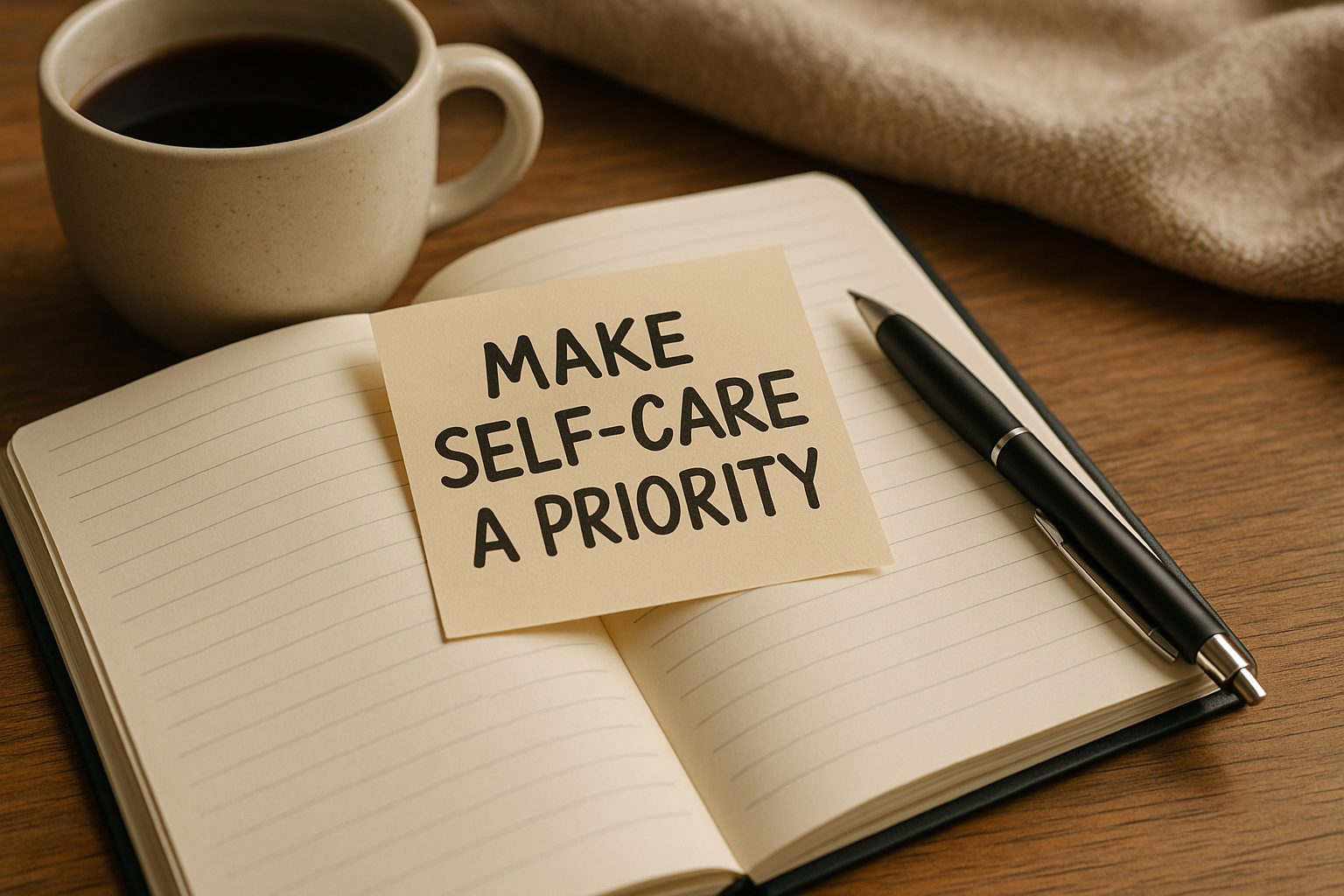Self-care is often treated as a luxury — something you do only when you have time, energy, or money. But in truth, self-care is a necessity. It’s the foundation that allows you to show up for your responsibilities, relationships, and goals without burning out. When you make self-care non-negotiable, you don’t just take care of yourself — you transform your life from the inside out.
Redefining Self-Care
Self-care isn’t about bubble baths or expensive retreats (though it can include those). It’s about consistently meeting your physical, emotional, and mental needs with intention and respect. It means:
- Saying no when you’re overwhelmed
- Eating in a way that nourishes your energy
- Making time for rest, joy, and reflection
- Creating boundaries that protect your peace
Self-care is how you show yourself that your well-being matters.
Why It’s Often Neglected
Many people neglect self-care because of guilt, busyness, or belief systems like:
- “I don’t have time.”
- “Others need me more.”
- “I’ll rest when the work is done.”
- “It feels selfish.”
But caring for yourself isn’t selfish — it’s sustainable. When you are resourced and well, everyone around you benefits.
Identify Your Core Needs
Start by identifying what you truly need to feel balanced. Consider:
- Physical needs: sleep, movement, nutrition, hydration
- Emotional needs: rest, connection, creative expression, solitude
- Mental needs: clarity, focus, inspiration, calm
- Spiritual needs: meaning, reflection, inner peace
Your self-care routine should be built around meeting these needs consistently — not just in crisis.
Create a Daily “Care List”
Instead of a to-do list that only includes tasks and goals, create a daily care list. Include small actions like:
- “Drink water before coffee”
- “Step outside for 5 minutes”
- “Stretch before bed”
- “Check in with how I’m feeling”
These gentle reminders reinforce your commitment to yourself.
Schedule It Like Anything Else
If you wait for free time, self-care will always come last. Instead, schedule it. Block time for rest, creativity, or movement on your calendar. Treat it with the same respect as meetings or errands. A 10-minute walk or a quiet break between tasks counts — and consistency matters more than duration.
Start With Small, Repeatable Habits
Don’t overwhelm yourself with an entire self-care overhaul. Choose 1–2 small actions and repeat them daily. For example:
- 3 deep breaths upon waking
- 5-minute journaling at night
- Tech-free lunch breaks
- A bedtime routine that soothes you
Over time, these habits create a rhythm of care that becomes second nature.
Remove the Pressure to Be Perfect
Self-care is not another thing to do perfectly. You don’t have to feel amazing after every walk or write pages in your journal. Some days, self-care is simply breathing through stress or saying no when you’re depleted. It’s the commitment that matters — not the performance.
Learn to Say No
Saying no is one of the most powerful self-care tools. It creates space for rest, reflection, and peace. You don’t have to explain or justify your no. A simple “I’m not available for that right now” is enough. Every no to overwhelm is a yes to yourself.
Reflect on the Impact
At the end of the week, ask yourself:
- What acts of care did I give myself?
- How did they affect my energy and mood?
- What do I need more or less of next week?
Reflection turns self-care into self-awareness — and that deepens your practice.
Final Thought: You Are Worth the Effort
Making self-care non-negotiable is a declaration that you matter — not someday, but now. It’s choosing to tend to yourself not out of vanity, but out of respect. You don’t have to wait until you’re exhausted to begin. Start small. Start today. Build a life that honors your well-being — one caring act at a time.
